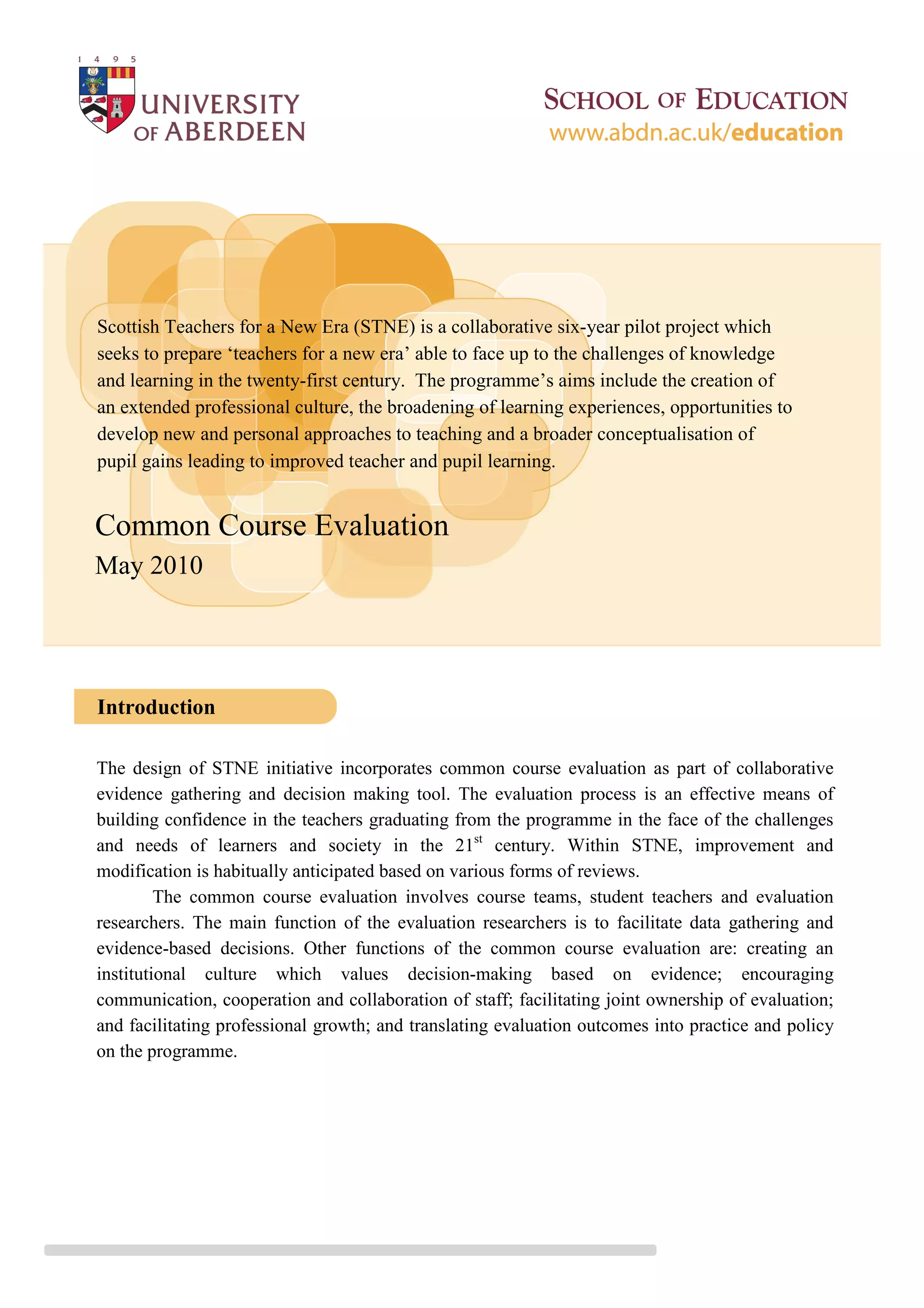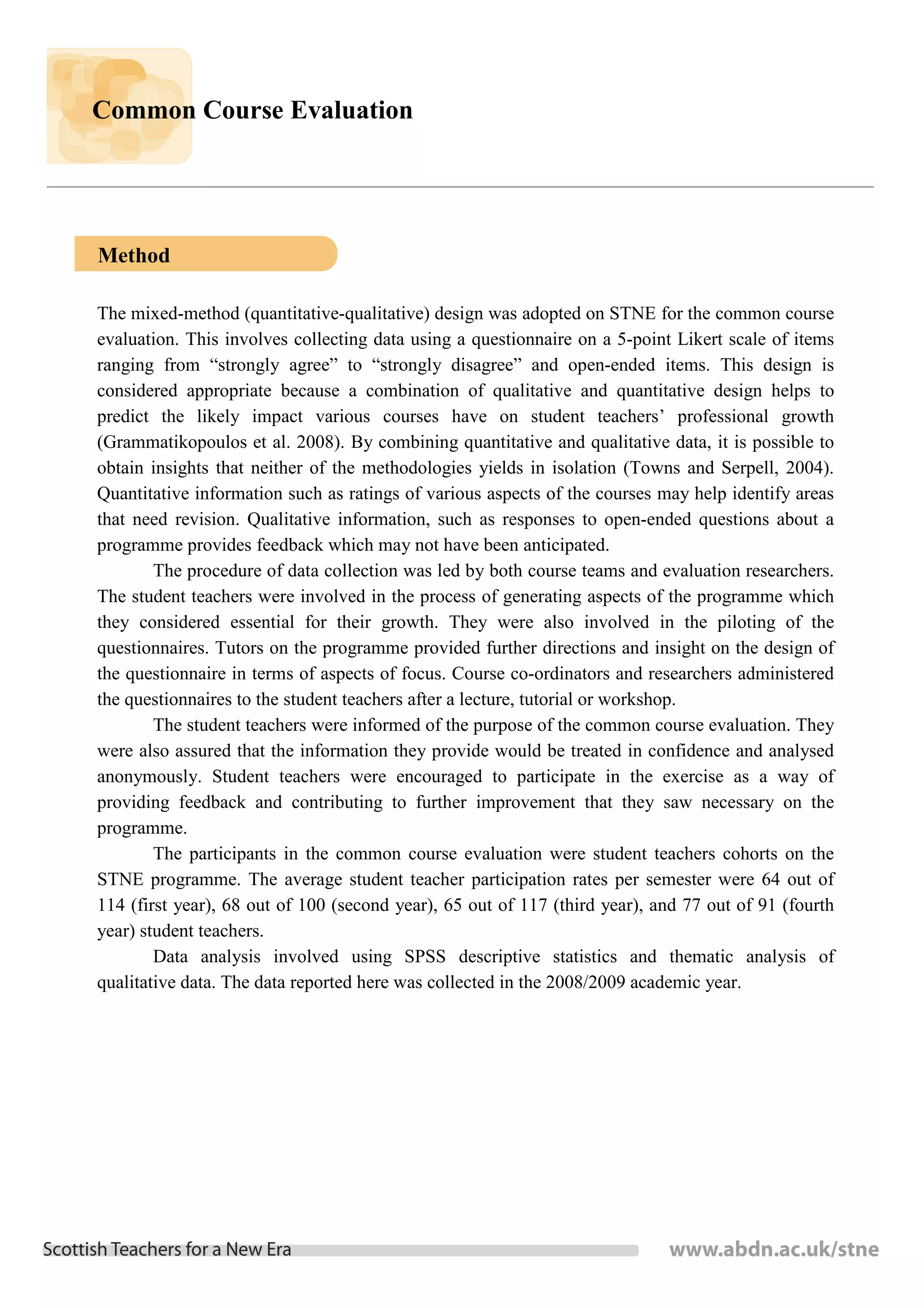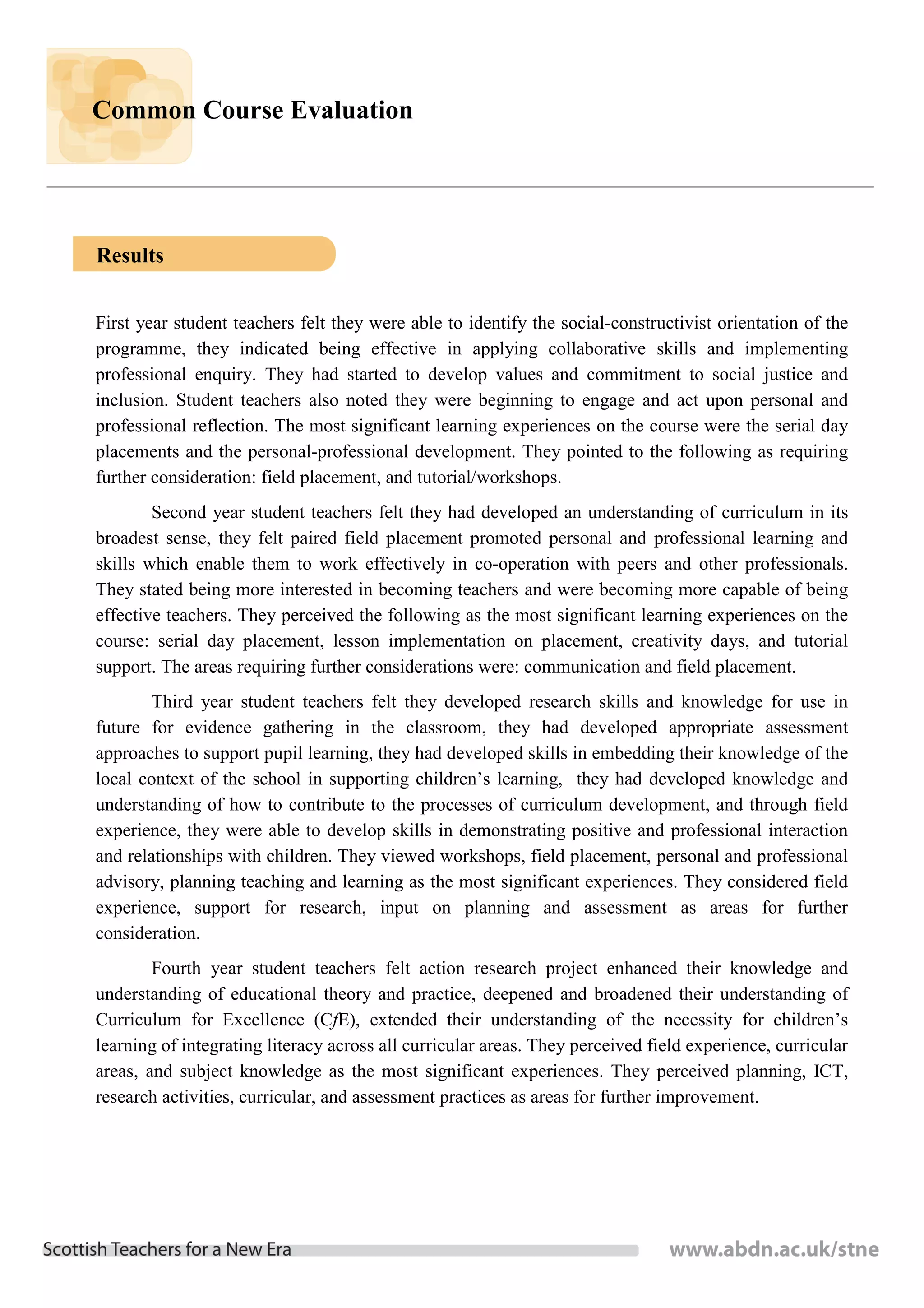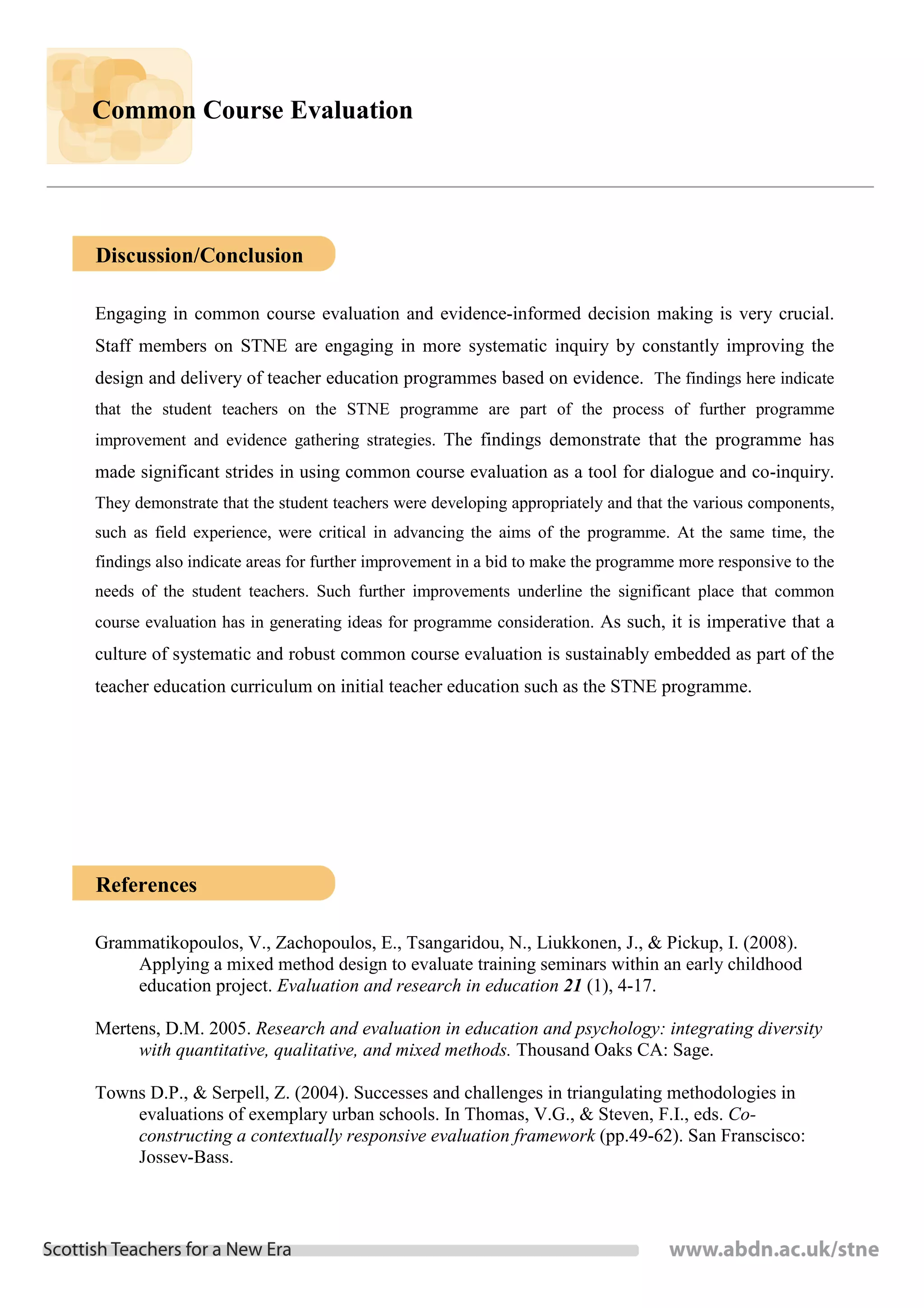The document summarizes the results of a common course evaluation conducted on the Scottish Teachers for a New Era (STNE) programme, which aims to prepare teachers for the 21st century. Student teachers across the four years of the programme felt they were developing skills in areas like collaboration, social justice, reflection, and understanding curriculum. Field placements were widely seen as significant learning experiences. The evaluation also identified areas for further improvement. Engaging in these evaluations is important for continuously improving teacher education based on evidence.



